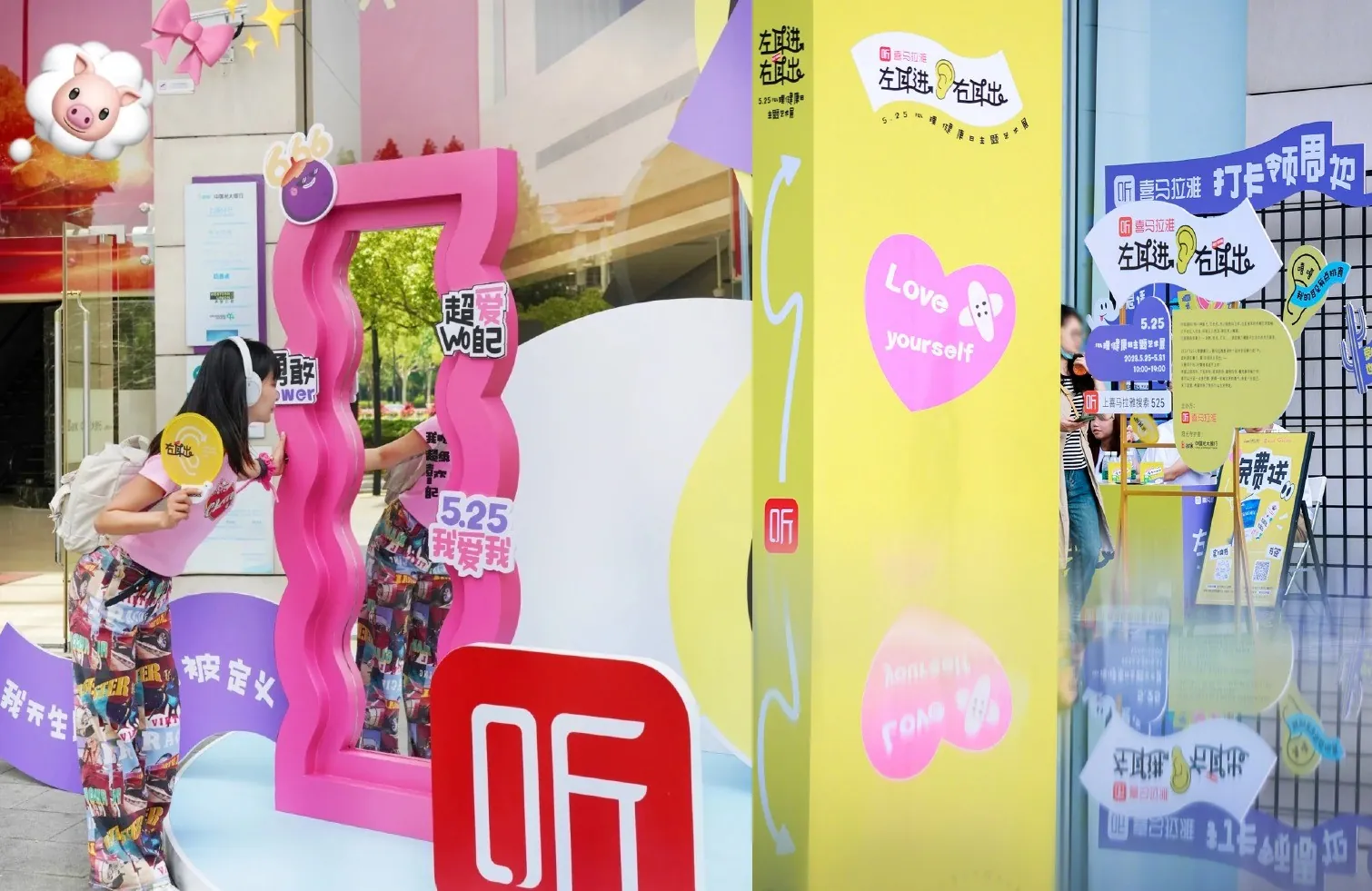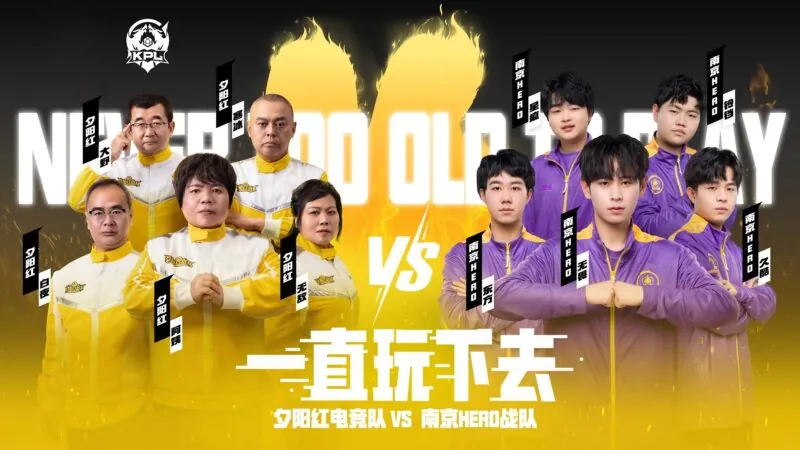Key takeaways:
- Podcast provider Ximalaya set out to help young people and their loved ones tune out stressors for Student Mental Health Day (May 25) with an offline exhibition in Shanghai and a week of live podcasts.
- Podcasts are a promising industry in China with the total volume of podcast programs swelling to 25,000, a figure which has increased by 150% from 2020.
- The up-and-coming format is perfect for reaching China’s disaffected youth since 88.5% of China’s podcast listeners are under 35.
As youth unemployment soars, China’s college students and recent graduates are ready for a second summer of “letting it rot”.
Currently sitting at over 500 million views on trend-generator Xiaohongshu, the buzzword “let it rot”, which means to give up trying so hard to achieve one’s goals, first took Chinese social media by storm in 2022. The word captures the energy of disaffected and burnout youth who are fed up with a hypercompetitive education system, brutal work culture, and constant lockdowns.
While lockdowns are long gone, education and work remain problematic. Podcast provider Ximalaya set out to help young people and their loved ones tune out these stressors for Student Mental Health Day (May 25) with an offline exhibition in Shanghai and a week of live podcasts.
Podcast therapy for urbanites
Podcasts are a promising industry in China. The total volume of podcast programs in China has swelled to 25,000, a figure which has increased 150% from 2020. As China’s foremost homegrown podcast provider, Ximalaya currently has over 160 million podcast listeners (11% of the population), more than 25,000 active podcast hosts, and the average monthly income of podcast hosts has increased by 38% year-on-year.
As China’s foremost homegrown podcast provider, Ximalaya currently has over 160 million podcast listeners
The up-and-coming format is perfect for reaching China’s disaffected youth since 88.5% of China’s podcast listeners are under 35. What’s more, 86.4% are educated to at least undergraduate level, meaning topics like psychology and therapy are ideal to stimulate engagement amongst this relatively intellectual user base.
For the 525 Student Mental Health Day campaign, Ximalaya offered an array of regular live broadcasts from May 25-31. Different from the typical podcast format in which audio is pre-recorded, live broadcasts offer the chance for listeners to watch as their favourite podcaster speaks in real time.
From youth depression and mental exhaustion to relationship conflict, setting boundaries, and healing from a breakup, the live broadcasts covered a huge range of relatable everyday mental health scenarios. The podcasters included professional counsellors, college professors, and online mental health bloggers, offering a variety of advice styles and voices for listeners with different preferences.
Many podcast listeners find the activity itself very “zhiyu” or therapeutic. Ximalaya’s campaign taps into the average podcast listeners desire to unwind at the same time as learning something new. On top of this, the fact that the podcast is live rather than pre-recorded heightens the sense of participation as though the listener is being accompanied in that moment by the podcaster.



A space to tune out the negative noise
To accompany the live podcast series, Ximalaya also hosted a free offline event in Shanghai’s Lujiazui district around the theme of “in one ear, out the other”. The purpose of this theme was to target “verbal violence” – the words that, whether they are intended to or not, get under the skin and damage self-esteem. With the tagline “In one ear, out the other” Ximalaya encouraged participants to let go of painful words and simply tune them out like background noise.
With the tagline “In one ear, out the other” Ximalaya encouraged participants to let go of painful words
To boost young people’s self-esteem, Ximalaya set up a “boasting mirror” covered in encouraging phrases like “I love myself” and “666” (an internet slang used to praise others’ achievements). Attendees could also pick up positive affirmation stickers and paste them around different stations along the interactive art trail set up by Ximalaya.
The colourful design of the event lent itself well to the dopamine-themed fashion craze hitting Xiaohongshu and created an opportunity for social media users to “punch in”. Many took to Xiaohongshu to post images of themselves brandishing positive affirmation placards next to the “boasting mirror”.
The Science of Happiness
Ximalaya’s call to “throw off negative emotions and be happy people” through this campaign aligns with positive psychology, a school of thought that has taken hold in China as the country’s mental health awareness has steadily increased.
Positive psychology is built on the idea that a healthy mind stems from cultivating positive thoughts
Positive psychology is built on the idea that a healthy mind stems from cultivating positive thoughts and that positive thoughts lead to success, which in turn creates a cycle of positivity and happiness. Positive Psychology is also actively promoted by the government as it supports the aims of a happy and stable society.
Positive psychology is also a robust branding strategy as “happiness fever” has grown in China, especially among middle-class urbanites. Ximalaya’s 525 campaign taps into the idea that happiness is a science, positioning itself as a trusted source of advice and emotional support, whilst also expanding its visibility through a social media-friendly offline campaign.
Podcasts are a potentially powerful marketing tool and monetisable content form. This is made more promising in China by the fact that 87.8 % of the country’s listeners do not oppose commercialisation of the medium and 88.5% have paid for content before. Podcasts are all about self-improvement, so marketers looking to harness the medium should think about how they can expand the horizons of listeners, offer advice, or soothe.









